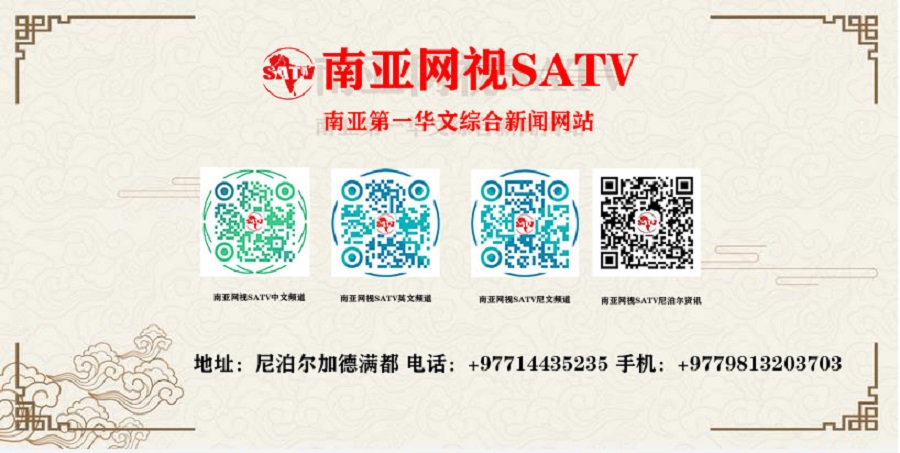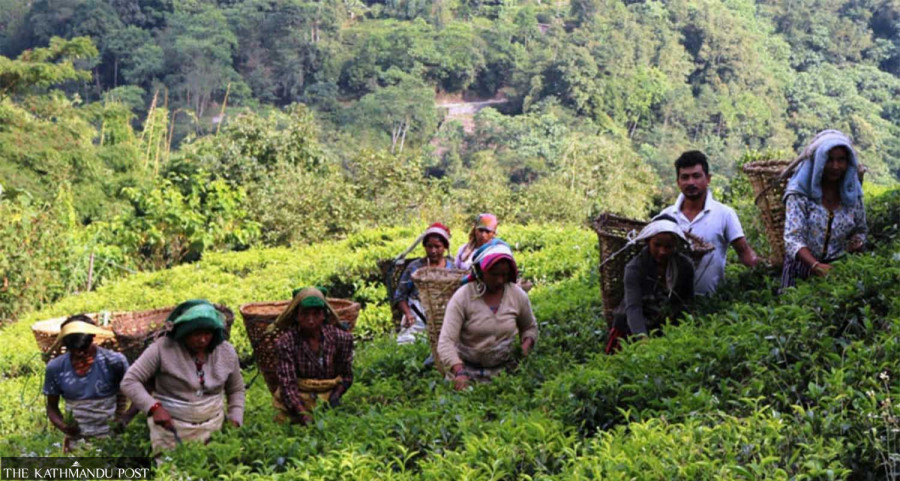
Nepali tea producers say any move to restrict exports will hit the industry hard. Post File Photo
Tea is a daily fix—in Nepal and India. But this humble leaf has emerged as an issue that may need diplomatic communications between the two countries—both known for producing one of the most consumed items in the world.
Worried that India may ramp up import barriers on Nepali tea to protect its own industry, Nepali tea producers on Tuesday met with Prime Minister Sher Bahadur Deuba to apprise him of the possible consequences of such a move.
India is the largest buyer of Nepali tea, and more stringent requirements for the certificate of origin, as has been demanded by an Indian parliamentary panel, would be disastrous for domestic producers, insiders say.
A seven-member team of Suryodaya Tea Producers Association arrived in Kathmandu from Ilam on Sunday to appeal for official intervention. The delegation also called on Finance Minister Janardan Sharma on Monday.
“Deuba has assured us that he will raise the issue with the authorities concerned, including Indian Ambassador to Nepal Naveen Srivastava,” Bishnu Prasad Bhattarai, executive director of the National Tea and Coffee Development Board, told the Post.
Nepal is worried about the survival of its tea sector if India imposes levies on tea exports.
India’s Parliamentary Standing Committee on Commerce in June recommended that the Indian government apply stringent norms for certification of tea that is exported from Nepal to India, in addition to duties.
The parliamentary committee also pointed out that the entry of low-quality products from the neighbouring countries was jeopardising the Indian tea industry, and asked that anti-dumping duty ranging from 40-100 percent be imposed, according to reports.
The panel has also asked that the Indo-Nepal Treaty of 1950 be reviewed.
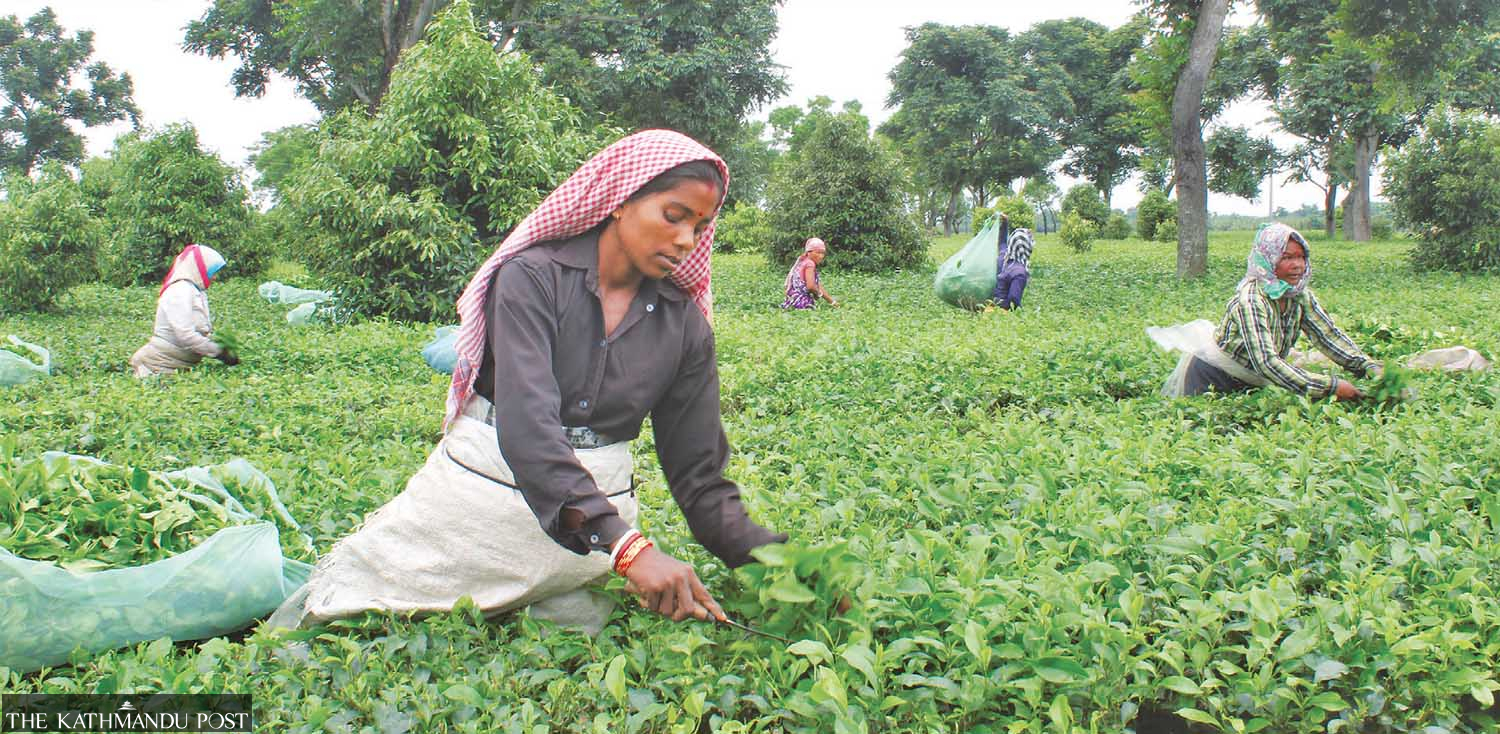
Nepal’s Rs5-billion tea industry is going through hard times. Post File PhotoNepali tea producers say any move to restrict exports will hit the industry hard. Nepal ships around 90 percent of its orthodox tea and 50 percent of its crush, tear and curl (CTC) tea to the southern neighbour.
"If India’s proposal materialises, it will be a disaster for the Nepali tea industry," said Mahesh Aryal, treasurer of the Suryodaya Tea Producers Association. “It’s important to address the issue quickly by holding bilateral talks.”
On July 31, the National Tea and Coffee Development Board had written to the Ministry of Industry, Commerce and Supplies about the Indian parliamentary committee's decision.
“The issue can be sorted out through bilateral negotiations,” Bhattarai said.
Years ago, the Darjeeling Tea Association had requested the then Indian President Pranab Mukherjee to stop the import of Nepali tea by submitting a memorandum when he visited Darjeeling.
There have been several attempts from Darjeeling to stop the import of Nepali tea.
Indian producers have been alleging that Nepal’s tea is substandard, and that the prices too are lower which is hurting India's tea production.
Reports say that the cheaper tea produced in Nepal isn’t allowed to be exported to India currently as it would create challenges for tea producers in India.
“If India implements the new policy, it may affect thousands of farmers,” said Aryal.
The decision may put hundreds of factories on the verge of collapse because imposing duties on tea will make Nepali tea expensive.
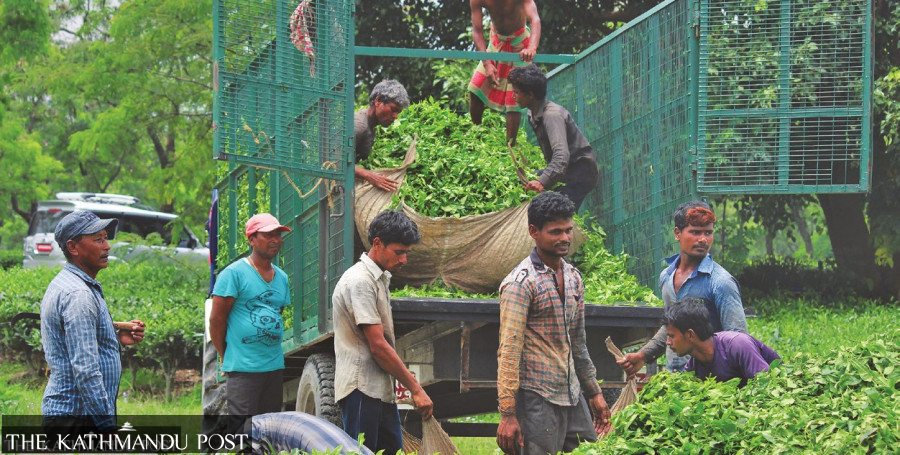
Nepal ships around 90 percent of its orthodox tea and 50 percent of its crush, tear and curl tea to the southern neighbour. Post File PhotoNepal produces around 7,168 tonnes of orthodox tea annually in the hills. It also produces 15,654 tonnes of CTC tea, known for its strong and bright appearance, in the lowlands of the Tarai.
According to the Agriculture Ministry's statistics, Nepal shipped 12,494 tonnes of tea worth Rs3.43 billion in the last fiscal year ended July 16.
Tea producers say that Nepalis consume nearly Rs2 billion worth of tea annually.
Nepal’s Rs5-billion tea industry, which is one of the key foreign exchange earners for the country, is going through hard times.
Tea farmers in the country’s eastern region have been facing acute shortages of urea, one of the most important sources of nitrogen.
The growers are worried because poor harvests due to lack of nutrients means reduced income for them, and life will become that much harder.
The government removed subsidies in the tea industry three years ago. Even then, tea producers have not been able to obtain the vital plant nutrients.
Tea producers say they may face a double whammy if India moves to restrict Nepali tea.
Nepali tea, according to traders, is in big demand globally apart from India, but measures like Sanitary and Phytosanitary (SPS) are a barrier to Nepali exports.
Importing countries have been expressing concern over pesticide residue in the tea traded from India and Nepal, according to a South Asia Watch on Trade, Economics and Environment report.
"European countries have set a slew of quality standards, but Nepal does not have an appropriate lab to check its products," Aryal said. “There is a huge market for Nepali tea globally, but the government should help producers to make Nepali tea acceptable globally.”
The tea sector has never been a priority for the government.
“The government has no investment in tea. The trade policy to promote Nepali tea globally too is poor,” said Aryal. “We don’t even have a single lab to test the standards of tea before exporting it.”
Nepali tea needs to be tested at the Central Food Laboratory in Kolkata, India to obtain export certification. Tea producers lament that they are still forced to sell tea at prices set by Indian traders.
Aryal said China could be a key market for Nepali tea, but there are no policies to promote it in the northern neighbour.
“As Nepali tea has been exported to India for decades, traders did not explore alternative markets,” Aryal said.
Nepal grows two types of tea: Camellia assamica or CTC tea which grows at lower altitudes and in the hot and humid plains of Nepal, primarily in Jhapa district. This tea accounts for almost 95 percent of domestic consumption owing to its lower cost of production.
Camellia sinensis or orthodox tea is grown at altitudes of 900 to 2,100 metres. Four districts in the eastern hills are known for producing quality orthodox tea—Ilam, Panchthar, Dhankuta and Tehrathum.
Ideally, orthodox tea is produced from the top two leaves and a bud from each branch.
Orthodox refers to a traditional production process where the plucked tea leaf is partially dried (withered), rolled and then fermented to give a light colour, unique aroma and fruity flavour. It usually fetches a higher price than CTC tea in view of its quality, demand in the market and higher cost of production.
Tea producers say that the future of tea farming is in jeopardy. Many of them have started switching to other crops.
According to a government report, the tea industry is an important part of Nepal’s rural economy as it plays a significant role in rural employment and income generation.
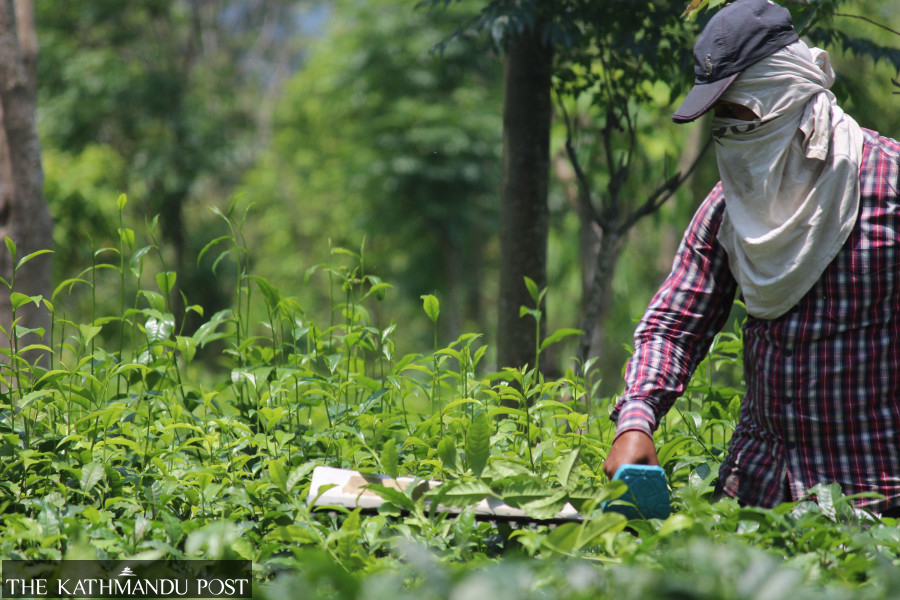
Nepal produces around 7,168 tonnes of orthodox tea annually in the hills. Post File PhotoMore than 60 percent of the human resources involved in the tea sector are women, and smallholders account for a majority of the production.
A developed tea sector and increased tea exports will ultimately benefit women, generate employment and reduce poverty, various reports have shown.
The private sector has been actively involved in producing organic tea and branding it, but Nepali tea has remained unknown in many parts of the world, tea producers say.
Nepali tea shipments have been stopped time and again by the Indian side under different pretexts. For instance, around eight months ago, India had blocked a cargo of 40,000 tonnes of tea for several weeks.
In June 2020, over 20 trucks carrying Nepali tea and large cardamom were halted on the bridge over the Mechi River by the state government of West Bengal in India.
In May 2018, tea exports from Nepal to India through the Kakarbhitta border crossing were stopped following obstructions from Indian authorities. Indian customs officials created hassles over quarantine.
Aryal says that the National Tea and Coffee Board, a government facilitating body, has not been performing its duties as it has become a political agency and has been busy making political appointments.
“The board has not been working as per its objective,” Aryal said.
